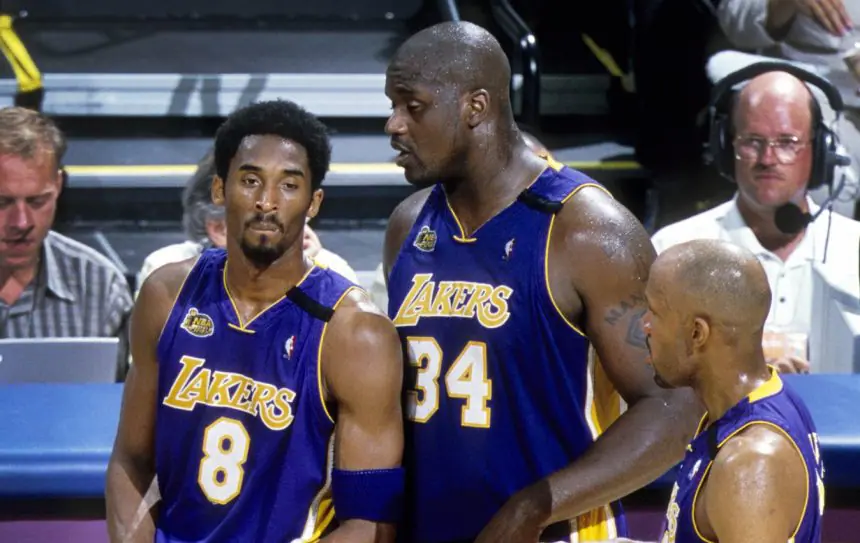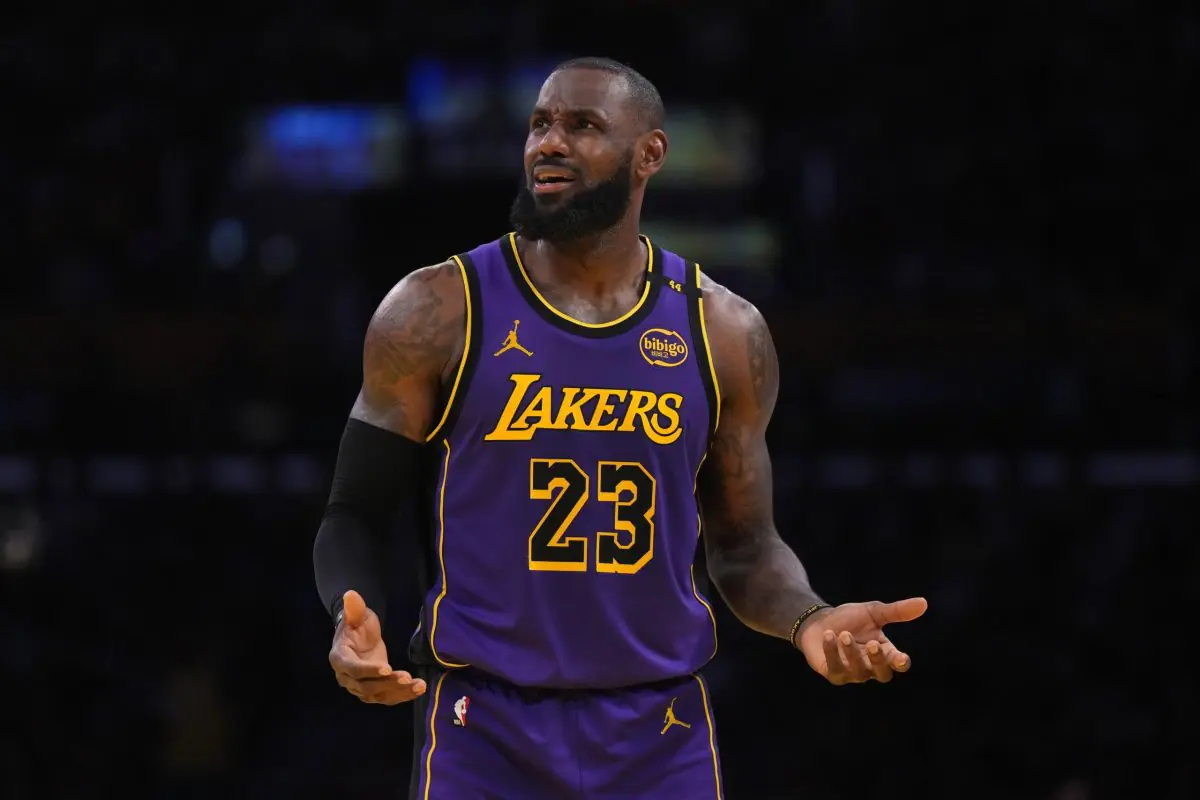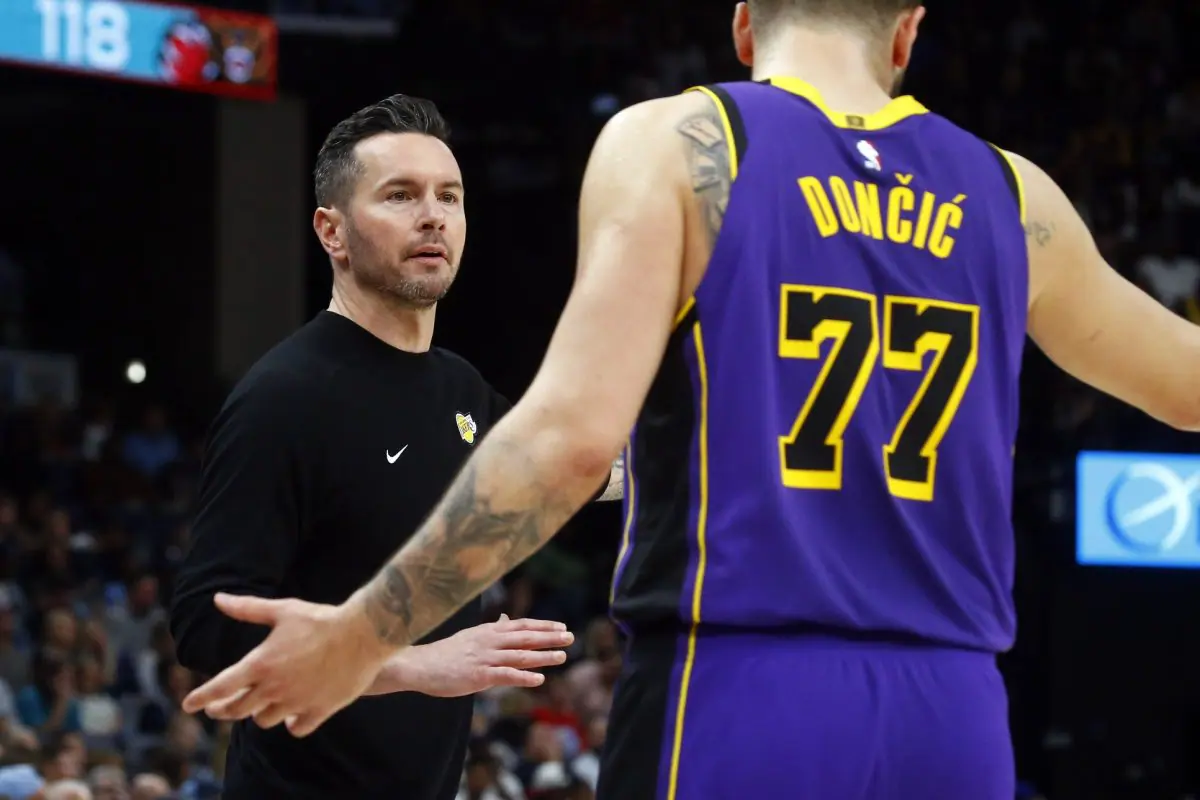When the start of the 2000-01 season rolled around for the Los Angeles Lakers, Kobe Bryant had already established himself as a legitimate NBA star, even if he was still a spring chicken.
After all, he was on the heels of a playoff run in 2000 during which he averaged 21.1 points, 4.5 rebounds, 4.4 assists, 1.5 steals and 1.5 blocks per game. The Lakers also won the NBA title that year.
Despite Bryant’s quality of play during the Lakers’ championship run in the 1999-00 season, he still had to share the spotlight the following campaign while playing alongside Shaquille O’Neal.
Bryant wasn’t Los Angeles’ leading scorer that season, and Derek Fisher thinks that Bryant started feeling like he was being asked to sacrifice too much.

“We won the first title in 2000, and so I think that second year…in 2000, 2001, that’s when it really shifted a little bit to I think Kob really felt like he was bein’ asked to sacrifice a little too much in terms of what — again, you have to remember, Kob really saw himself and ultimately became one of the G.O.A.T.s,” Fisher said. “Right? And so none of the guys on that list were the second guy. I mean, if you really go down the list of guys that we have the G.O.A.T. conversations about, I don’t know if there were many of those guys, if any, were the second guy.
“And so I think in ’01, Kob started to feel like, ‘In order for me to be the G.O.A.T. that I know I’m capable of accessin’ — I’m willin’ to put the time in. I’m willin’ to wake up at four in the mornin’, no sleep, train hard, play in every game, play through injuries, do everything to become one of the greatest players of all time. Why am I being asked to do less and be less when my teammate that is capable of just as much or more greatness isn’t maybe investing that much time, energy, et cetera?’
“And I think that was the year where it changed a little bit from healthy — some of the tension the great teams do need — to a little bit more like one guy is maybe standing in the way of the other. And so for the rest of us on the group, we just always made sure that both guys understood, ‘We’re not pickin’ a side, bro.'”
In the 2000-01 season, Bryant averaged 28.5 points per game while shooting 46.4 percent from the field and 30.5 percent from deep. His scoring average marked a career-high at that stage of his career, though O’Neal led the way for the Lakers that season with 28.7 points per contest on a league-best 57.2 percent shooting from the floor.
It’s worth noting that Bryant did take more shots per game than O’Neal in the 2000-01 season, which marked a first during their time as teammates.
Still, O’Neal finished higher up than Bryant in Defensive Player of the Year and MVP voting in that campaign. What’s more is that O’Neal landed a spot on the All-NBA First Team while Bryant earned an All-NBA Second Team selection.
While Bryant again took more shots per game than O’Neal in the 2001 NBA Playoffs, the big man was still arguably a bigger factor. He led the Lakers in points and rebounds per game across 16 games played, and he also won the Finals MVP award for Los Angeles after the team eliminated the Philadelphia 76ers in five games in the NBA Finals.
Bryant and O’Neal ultimately won three titles as teammates and then added to their ring collections on their own terms after their partnership came to an end. Bryant retired with five championships while O’Neal retired with four.









